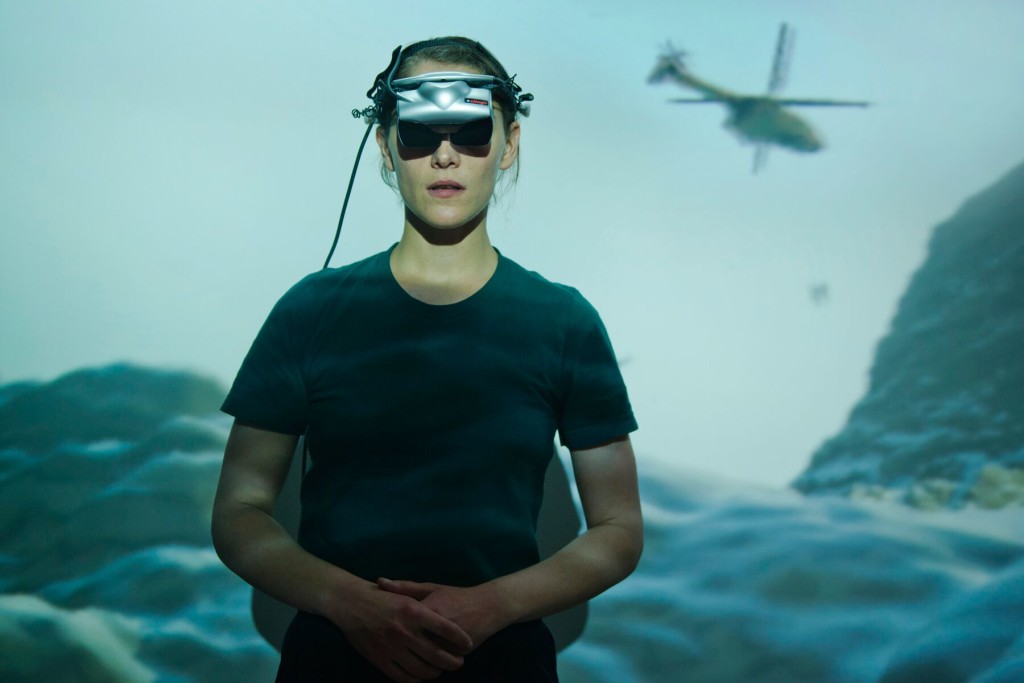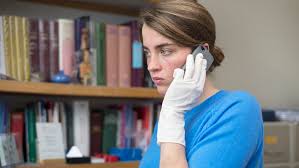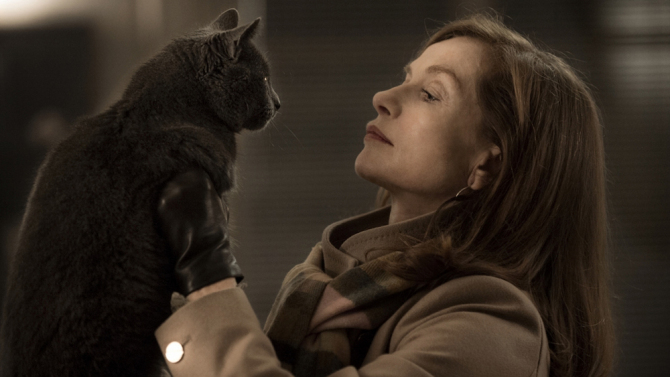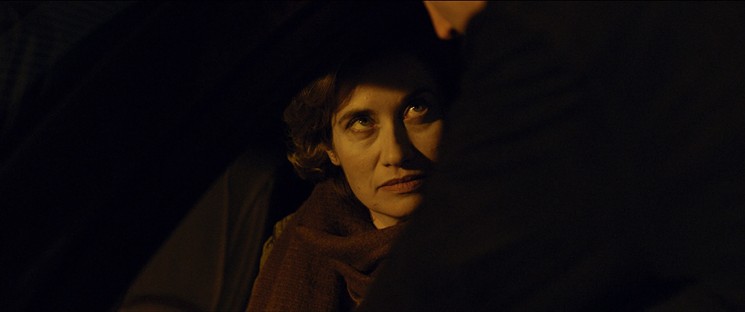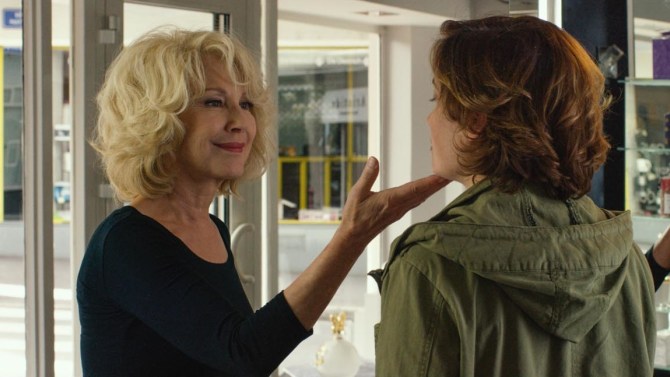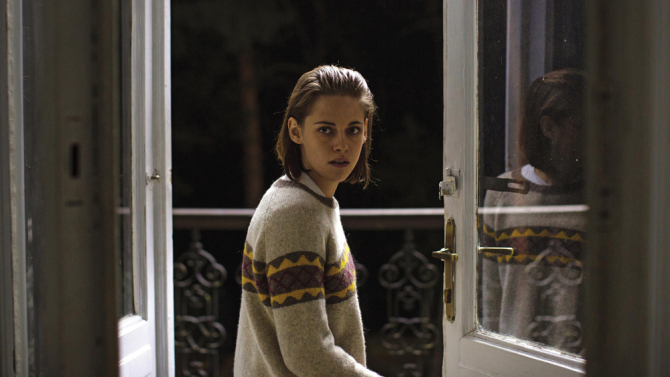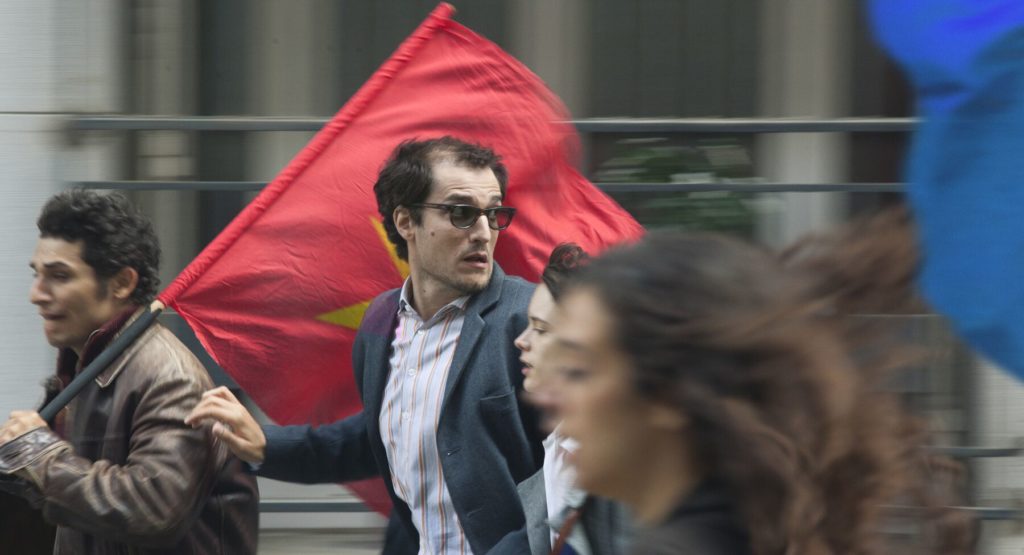
Godard, Mon Amour is a bitingly funny portrait of flawed genius. Michel Hazanavicius (The Artist) pays tribute to the genius of filmmaker Jean-Luc Godard’s early career while satirizing Godard’s personal excesses.
Godard, Mon Amour traces the three pivotal years after Godard married Anne Wiazemsky, the 19-year-old star of his La Chinoise. Godard (Louis Garrel) is age 37. In the preceding seven years he has helped revolutionize cinema as a leader of the French New Wave. He has made three masterpieces: Breathless, Contempt and Band of Outsiders. This is the Godard of “All you need to make a movie is a girl and a gun.”
But now Godard has become a doctrinaire Maoist and rejects his past work. He sees himself as a thought leader of revolutionary politics – but that is a delusion. He’s just a political amateur, a poseur, a tourist.
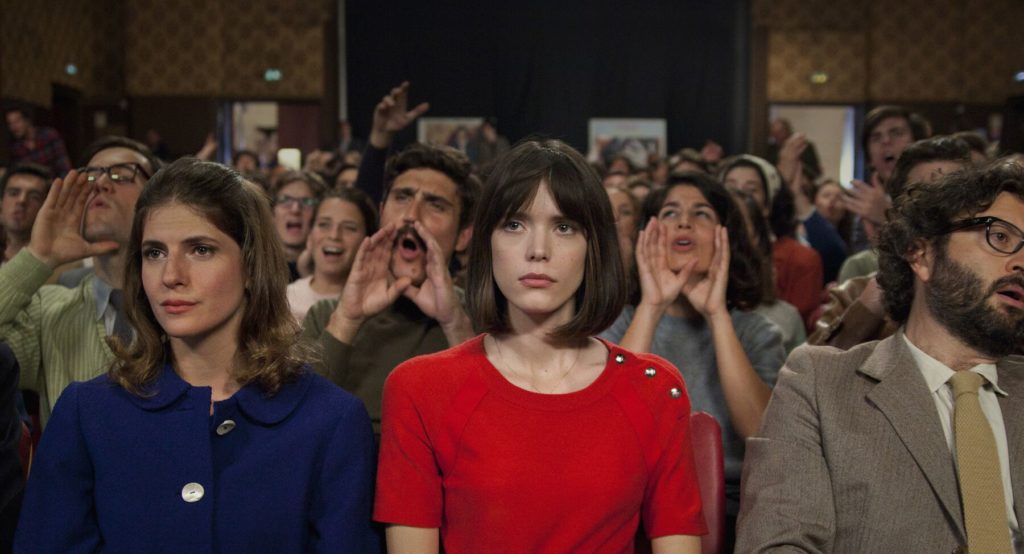
“Godard is dead”, Godard declaims. But young Anne (Stacy Martin) has hitched her star to the old Godard, the master of cinematic innovation and rock star, not this new dogmatic Godard.
This is also a snapshot of 1967, when many on the French Left believed that revolution in France was around the corner. By 1969, it was apparent to virtually everyone that this had been a mirage, that revolution was not going to happen. To everyone but Godard, who stubbornly stuck with his dogma.
Louis Garrel, his dreamboat looks glammed down with Godard’s bald spot, is often very funny as he deadpans his way through Godard’s pretensions. In Godard, Mon Amour, Godard’s thinking has become so devoid of humor, nuance, texture and ambiguity that his art has become one-dimensional and boring. Indeed, I have found all of the Godard films since 1967’s Weekend to range from disappointing to completely unwatchable. Godard is alive at age 87 and still making movies today – and they all suck.
In his very biting send-up of Godard’s personal failings, Michel Hazanavicius pays tribute to Godard’s groundbreaking cinematic techniques. We see jump cuts, breaking the fourth wall, shifting between color and negative imagery,
subtitling the characters’ interior thoughts over their spoken dialogue and references to earlier movies. It’s all very witty.
There’s even a motif of repeatedly broken spectacles as an jomage to Woody Allen’s Take the Money and Run. In one of the more obvious jokes, Godard and Anne debate whether either would choose to appear nude in a movie while they walk around their room in complete, full-frontal nudity.
The more of Godard’s films you have seen, the more enjoyable you will find Godard, Mon Amour. If you don’t get the allusions to Godard’s filmmaking, you may find the protagonist of Godard, Mon Amour to be miserably tedious. I saw Godard, Mon Amour at the 2018 San Francisco International Film Festival (SFFILM). It opens this Friday in the Bay Area.


